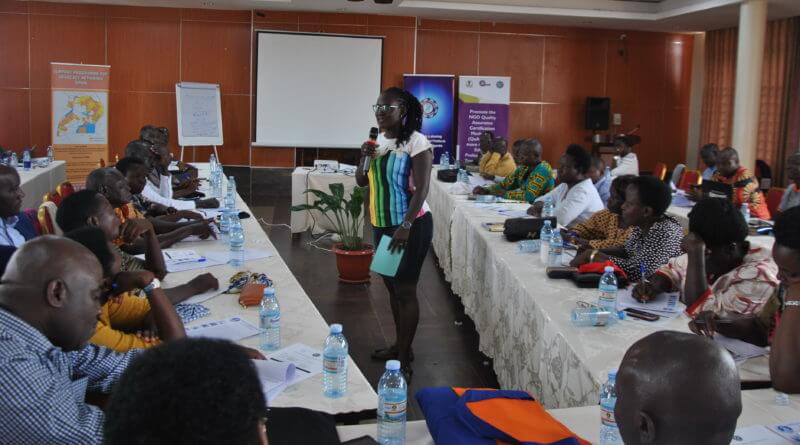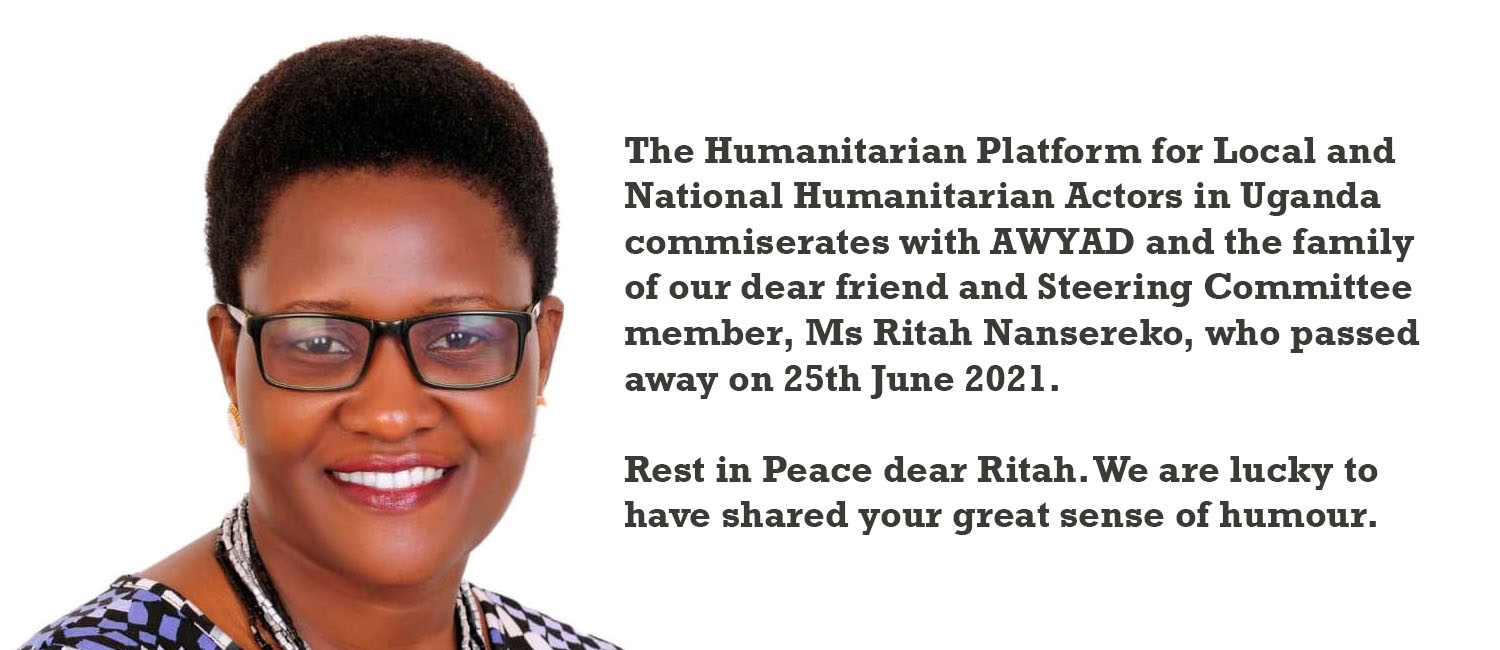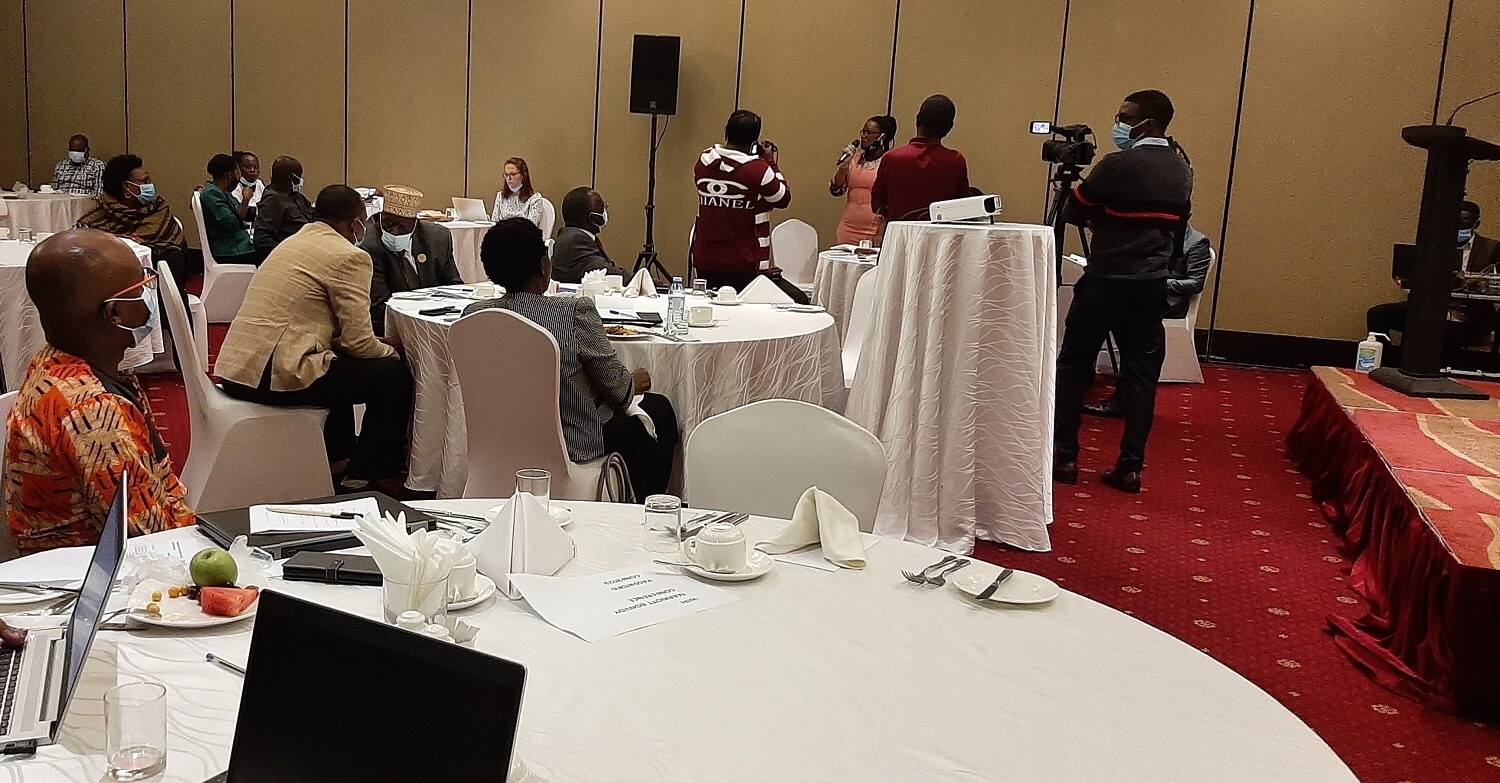
From 4 to 14 – New Regional Hubs to deliver UNNGOF Programs
Growth is inevitable. It is also a sure sign of the healthiness of any entity.
After a comprehensive organization assessment of UNNGOF in 2018 highlighting the Institutional strengths and gaps for an effective platform, a 3 year partnership was signed with DGF, CSO Resilience, Health, and Healing. Back to the basics and connecting with Citizens. Key among its undertakings was the comprehensive organization assessment for the 35 district networks which took place between 2nd -10th September 2019.
As a key outcome of this process, 14 Regional Advocacy hubs were identified and will work as special purpose vehicles to support and coordinate all sub-national engagements. A feedback meeting for all 35 partners of SPAN was organized on 18th October 2019 at Esella Hotel for a total of 74 participants, each District Network represented by a Coordinator and a Chairperson of the Board. The meeting not only provided an opportunity to share findings of the assessment and announce and orient the 14 new Regional Hubs, but was also an opportunity for capacity building sessions where topics like QuAM, financial systems, communication were covered.
Mr. Richard Ssewakiryanga, Executive Director UNNGOF, announced that the new regional hubs model would enhance UNNGOF’s ability to effectively coordinate CSOs at sub national level but also would facilitate the regional advocacy agenda. The hubs will continue working with other existing district networks.
The 14 new regional Hubs include;
Gulu NGO Forum – Acholi region
Lira NGO Forum – Lango region
Arua District NGO Network – West Nile region
Pallisa CSO Network – Bukedi region
Kanungu NGOs/CBOs Forum – Kigezi region
Kiboga NGO Forum – Buganda region
Namutumba NGO Forum – Busoga region
Kabarole NGO/CBO Association – Toro region
Kitara CSO Network – Bunyoro region
RIAM RIAM CSO Network – Karamoja region
Kapchorwa CSO Alliance – Sebei region
Amuria CSO Network – Teso region
Ankole and Bugisu region identification of hubs was deferred to a later date
Background
Over the years, UNNGOF has invested in building a sub national CSO infrastructure. In 2006-2011, the National District Networks Support Programme (NDNSP) was implemented, giving birth to 25 District Networks across the country. Having built strong district networks over 5 years, the programme rolled over into Support Programme for Advocacy Networks (SPAN) with 35 District Networks (DNs). These 35 DNs, under the leadership of 4 Regional Hubs, were to work as green houses for local democracy and interlocutors between citizens and the local governments and central government.
The networks have remained central in mobilizing and sensitizing citizens on their roles and responsibilities in nation building; social and political accountability have been strengthened through the district networks. However a number of challenges, including the dwindling finances to sub national partners and poor governance have largely affected the operations and relevance of district networks.
The 35 District Networks of SPAN are:
Kiboga NGO Forum, Kalangala District NGO Forum, Luweero District NGO Forum, Namutumba NGO Forum, Kibaale CSO Network, Bugiri NGO Forum, Mukono NGO Forum and Kamuli NGO Forum. Tororo Civil Society Network, Kapchorwa CSO Alliance, Pallisa CSO Network, Bugisu CSO Network, Kumi Network of Development Organizations, Riam Riam CSO Network, Sironko NGO Forum and Kotido NGO Forum. Lira NGO Forum, Kaberamaido District Network, Nebbi District NGO Forum, Pader NGO Forum, Katakwi District Development Actors Network, Kitgum NGO Forum, Moyo District NGO Forum, Kitgum NGO Form, Amuria CSO Network and Arua NGO Forum. Western Ankole Civil society Forum, Kisoro NGO Forum, Kamwenge District Indigenous Voluntary Development Organisation (KADIVDO), Kamwenge District Voluntary Development Organizations Network, Kanungu NGO/CBO Forum, Kabarole NGO/CBO Association, Kyenjojo NGO Forum, Mbarara NGO Forum, Kasese District Development Network.
By Robert Ninyesiga



